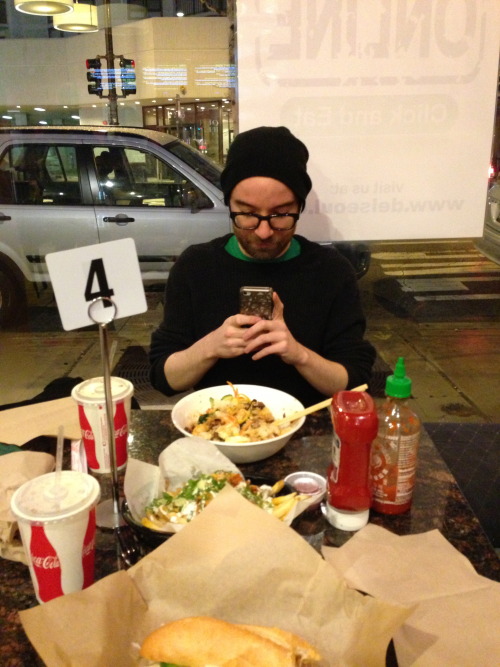On Sunday I followed up my previous talk in a miniseries called “Where is Jesus now?” with a look at how Jesus is visible in the here and now in images of him.
People. Those who have been transformed by Jesus. Into his image.
I feel like it was an adequate treatment of the question in that Jesus is visible in his church – but I feel like I pulled some punches in the answer that I gave.
It’s easy to talk about being Jesus in the small stuff. It’s easy to talk about being Jesus to other people when they’re moving house – or when you realise how broken you are, and they are… It’s easy to talk about being Jesus as something that’s a little intangible and hypothetical – it’s easy to say that people should be able to see Jesus in us. As we live transformed lives.
But it’s not so easy to see Jesus, here and now, in human tragedies.
The challenge for those who call Jesus Lord, who are being conformed to his image, and who are his image bearers – or ambassadors – is to know how to be Jesus in the awful extremities of life, not just in the every day.
Sure. Figuring out that bearing the image of Jesus means having a life shaped by the sort of sacrificial love Jesus showed at the cross will hopefully help us in big situations if we’re disciplined at living that way in the minutiae of daily life. But a big question we’ve got to answer – and account for, if we’re bearing Jesus’ image – is where is Jesus in tragedies.
Where is Jesus when bombs explode at the finish line of a popular marathon and maim hundreds?
The Westboro Baptists offer one answer.

It’s not a very good answer. There is no image of Jesus in this picture, or in these words. There is no Jesus in the words and lives of the Westboro Baptists. There’s as much Jesus in their ministry as there is in those pieces of toast that sell for thousands of dollars on eBay.
This sort of thing makes you wish that Anonymous would make good on their threats to remove the cancer that is Westboro Baptist… Even if that’s not real justice. And even if there’s a little of the hate (or at least the capacity for hate) that Westboro spew out in all of us… sometimes when we’re condemning them.
But Jesus is in the voices of people who are changed by him – who are called to be his ambassadors – joining together to call Westboro out for what they are. Spokespeople of evil. People peddling the sort of message that might have earned them the label “antichrist” from the guys who wrote the New Testament… Jesus is in the actions of the people who respond in love, rather than standing idly by – or worse – celebrating – when tragedies like this strike. Tragedies that are the result of human brokenness. Tragedies that unite us – tragedies that the world unites to condemn.
I read somewhere that the explosion left people with broken bodies and severed limbs – people who moments before had been taking part in a grand moment, sitting at the finish line of a marathon – the pinnacle of human athletic achievement. There’s something beautiful and pure about sport – it’s one of those parts of life, like music, love, and childbirth, where something magical happens. Something that puts the better aspects of our humanity to the fore… except when people cheat (or play country music).
That’s why it’s easy to spot the tragedy and injustice in this situation that has, as I write, claimed the lives of a handful of people, including a child, and seriously injured many, many others.
It’s easy to speak for Jesus in a situation where everybody is essentially saying the words, and offering the compassion, that those of us who follow Jesus want to be saying. You don’t stand out as different for wanting to see those who have been, literally, torn apart by those explosions, lovingly pieced back together – to have their lives stretch out for many years into the future with only small physical scars to show for this event.
It’s easy to be Jesus – to carry his image – when everyone agrees with what he says. When the media is trumpeting the story on front pages, and at the top of news bulletins, throughout the world.
It’s easy for those in leadership to sound like Jesus when they’re condemning evil and promising to deal with it, and deliver justice for the victims. It’s easy to be admirable and kingly – to be a voice of sacrificial authority and compassion.
But what about when the media is silent – by conspiracy, or just because an issue is deemed to be a non-issue?
Where is Jesus when tragedies are occuring in darkness – rather than in the prominence of an internationally significant sporting event?
Where is Jesus in the story of Kermit Gosnell?
Abortion is a horribly complex issue with all sorts of factors influencing a decision that often comes from a place of trauma and despair and leads to more trauma and more despair. This has never been more true than in the horrible shop of horrors case of Kermit Gosnell.
Where is Jesus in that million dollar backyard abortion clinic that ended the lives of mothers, and untold numbers of unborn babies – and worse – babies who were born. Live. During the abortion process. Only to be, literally, torn apart for the convenience of the mother and doctor. Using stationery. He’s on trial for killing seven babies and one mother – but it’s hard to tell the difference between a baby killed outside the womb at 30 weeks and a baby killed inside the womb at 30 weeks. It’s hard to tell the difference between these seven babies and the thousands of babies Gosnell has killed in completely legal (though horribly conducted) processes in his clinic. Which is why some ethicists argue that infanticide isn’t just ok, but the natural conclusion of legalising abortion. And is probably why pro-abortion reporters have a hard time demonstrating why Kermit Gosnell is a criminal anomaly rather than a participant in the status quo.
It turns out it’s much harder to be presidential when you’re talking about the potential legal murder of babies (Obama’s track record on this issue is pretty disturbing, I’m not expecting him to comment on a case that’s before the courts)… It’s much harder for the media to speak like Jesus in a story like this – as they try to balance their competing agendas. It’s harder to carry the image of Jesus into a situation like this – when people would much rather sweep the whole thing under a rug and forget it happened. It’s much harder to sound like Jesus when the mob is baying for a certain type of blood to match a certain style of lifestyle.
One of the tragedies of the abortion debate is that it’s the product of a culture that rejects the idea that some actions have consequences that we don’t want. If the debate was limited to early term abortions in the case of rape, or genuine threats to the life of the mother, there’d be a lot less heat. Even those situations aren’t black and white. But the goalposts have moved so far from those extremes to questions of convenience that we’re now in a situation where the long term mental health of the mother is said to justify the termination of a human life after the person has exited the mother’s body. It’s not about control over one’s body at that point.
Where is Jesus in infanticide? He’s in the voices of Christians who lovingly point out that we can do better – and who model a better way forward. A way that involves sacrificial love – not a voice of condemnation. A way that involves hope, not despair. A way that involves being Jesus not just to the unwanted babies – but to the mothers. To the legislators. To the doctors. We can do better. We need to do better.
It’s easy to speak for Jesus when what he’d say is obvious and requires no creativity. It’s easy to carry the image of Jesus into a situation where everybody agrees on a way forward.
It’s harder to speak for Jesus, and carry his image, when the way forward requires creativity and thinking outside the box in a completely counter-cultural way.
You can read Mike Bird’s excellent and persuasive piece on why we need to be thinking about infanticide now, not in three years, and I’d humbly submit this piece I wrote last year when those enlightened ethicists calmly essentially suggested that Kermit Gosnell’s actions be normalised as a useful companion piece.
Jesus is in those who speak out for the vulnerable. Who speak against the consensus that is driven by an ideology of “me” – an ideology that dehumanises other lives for my convenience. An ideology that knows nothing of sacrificial love – but only sacrifice of others. Of other lives. With scissors.
I’m sorry. But how did we get to this? We got here by rejecting the progress borne out of almost 2,000 years of people valuing life because Jesus valued life. Valuing life because human life is life made in the image of God with the potential to be life remade in the image of Jesus. You only get to humanism through Jesus.Humanism is that great modern “secular” doctrine which has somehow been white-anted by selfishness where “I” am valuable but fellow humans – including the unborn – are to be discarded when they become inconvenient and its within my power (or rights) to do so. Humanism is a product of Christianity. Cut out Christianity and the foundations for valuing life disappear. And we’re going to wear the cost of that.
We might see a bombing that takes the life of a handful of people – including a child – as tragic, and rightly so. It’s right for that story – that describes how human brokenness can affect something pure and exciting – to be front page news. But somehow the story of a man whose brokenness affected that other pure and exciting human event – childbirth – in bloody, heinous and unimaginably terrible ways – is only worth a mention five weeks into his trial as a result of a sustained outcry.
Somehow we need to be Jesus in situations like this.
Somehow we need to be Jesus to our legislators, and to parents – as Christians were in the pagan Roman empire where child exposure (infanticide) was a daily reality.
Here’s what Tertullian said about infanticide which was part of a Christian led revolution of the practice where Christians would take exposed children and raise them in loving environments – in a way that ultimately led to children being valued.
“But in regard to child murder, as it does not matter whether it is committed for a sacred object, or merely at one’s own self-impulse—although there is a great difference, as we have said, between parricide and homicide—I shall turn to the people generally. How many, think you, of those crowding around and gaping for Christian blood,—how many even of your rulers, notable for their justice to you and for their severe measures against us, may I charge in their own consciences with the sin of putting their offspring to death? As to any difference in the kind of murder, it is certainly the more cruel way to kill by drowning, or by exposure to cold and hunger and dogs. A maturer age has always preferred death by the sword. In our case, murder being once for all forbidden, we may not destroy even the fœtus in the womb, while as yet the human being derives blood from other parts of the body for its sustenance. To hinder a birth is merely a speedier man-killing; nor does it matter whether you take away a life that is born, or destroy one that is coming to the birth…”
Somehow we need to find creative ways to be Jesus to the mothers faced with the horrible prospect of terminating a life because they see no other way forward.
Somehow we need to be Jesus to those who would profit from the industry this produces.
Somehow we need to be Jesus to those who are legislating on our behalf so that people see that it’s ok to make decisions out of love for other people that come at personal cost. Like Jesus did. Somehow.
Somehow we need to help people rediscover the truth that people are made in God’s image, and of value – so that they might take the step to being remade in the image of Jesus, who after surviving an attempted infanticide when he was born, sacrificed himself for others.
It’s all well and good to pay lip service to living like Jesus – and at the end of the day I feel like I did a pretty good job of doing that on Sunday. Paying lip service to the idea that we should take up our cross and follow Jesus so other people see him in us. It’s easy enough to do it when everybody is up an arms. But what about when the rubber hits the road – what about in the face of tragedies and injustices that people aren’t really interested in knowing about?












